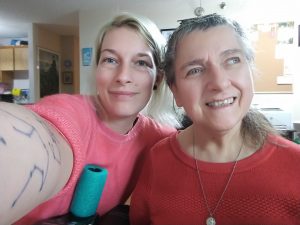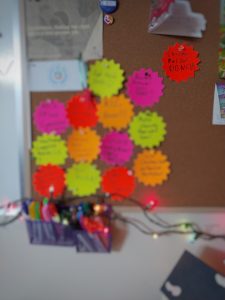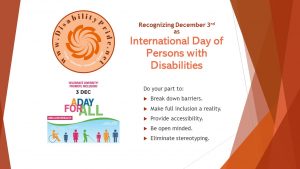[responsivevoice_button voice=”US English Female” buttontext=”Listen to Post”]
By Mary Wilson

After years of pestering from friends, family, and readers of this blog, after starting to plan it at 12 years old, after numerous false starts, Gerianne is FINALY writing her autobiography.
To facilitate writing, to ensure she has the time and energy to focus on her storied life, Gerianne has asked me to take over most of the responsibilities for writing and maintaining DisabilityPride.net’s blog. I humbly accepted the opportunity she presented to me, to maintain part of her life’s work and help keep her on track to complete her biggest piece of writing ever.
I hope I am able to bring joy and entertainment to every reader! I am excited to build on Gerianne’s legacy of disability pride and to flex my writing muscles again. I am also eager to see what Gerianne’s autobiography will be! She has led an interesting, exciting, and inspiring life. I have heard many of her stories but I know there are many more that will surprise me.
If you have any ideas for content you would like to see here or in our First Voice newsletter, contact us! We accept submissions at firstvoice@disabilitypride.net and we love hearing from you on our Facebook page (https://www.facebook.com/DisabilityPride.net)! We want to see your art and photography, read your stories and learn about issues and ideas that matter to you.
DisabilityPride.net is a community. We are here to bring pride to everyone and the best way to do that is with your inspiration and input.




